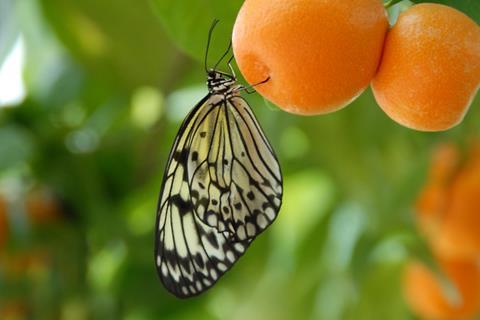The World Biodiversity Conference begins this week in Cali, Colombia, with a focus on the halt of species loss and ecosystems by 2030 and a call for action
The 16th World Biodiversity Conference opens on 21 October in Cali, Colombia. One priority is to implement the promises made two years ago in Montreal, Canada, where countries adopted the Kunming-Montreal Framework.
This framework contains 23 targets (including protecting 30 per cent of land and seas, halving the risk from pesticides and restoring 30 per cent of degraded areas) aimed at halting the loss of species and ecosystems by 2030.

Over the coming fortnight, government experts, environmental activists and indigenous groups are set to tackle pressing global challenges in biodiversity protection.
Around 12,000 delegates from 200 countries, including 140 government ministers and a dozen heads of state, are expected at the event.
UN Secretary-General Antonio Guterres called for urgent action and investment in the Global Biodiversity Framework Fund (GBFF) established last year.
“The framework is grounded in a clear truth – for humanity to survive, nature must flourish,” he said. “It promises to reset relations with Earth and its ecosystems.”
“But we are not on track,” he warned. “Your task at this COP is to convert words into action. That means countries presenting clear plans that align national actions with all the framework’s targets.”
Cop16 must engage all of society, he said, and strengthen the role of indigenous peoples and local communities, whose “knowledge and stewardship must be at the heart of biodiversity action at every level”.
A major impediment to action has been the inaction of most governments. Tom Oliver, professor of applied ecology at the University of Reading, is working with the UK government to identify “chronic risks” to the world, with disease outbreaks, loss of insects to pollinate crops, collapse of fisheries and flooding among the top threats recognised.
“I think we will, certainly, in the next 15 to 20 years, see continued food crises, and the real risk of multiple breadbasket failures,” he told the Guardian. “That’s in addition to a lot of the other risks that might impact us through fresh-water pollution, ocean acidification, wildfire and algal blooms, and so on.”
In August, a study found the UK’s nature-friendly farming schemes were having a positive impact on butterflies, bees and bats. Last month, however, the Labour government announced it would be slashing the nature-friendly farming budget in England by £100m.



